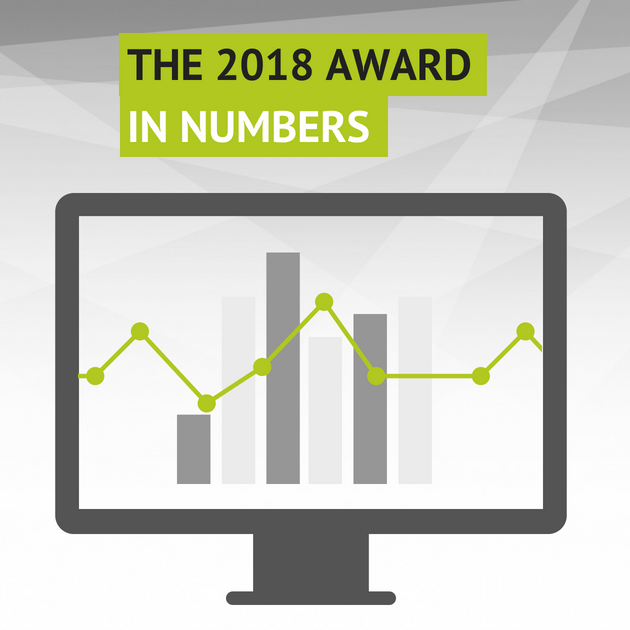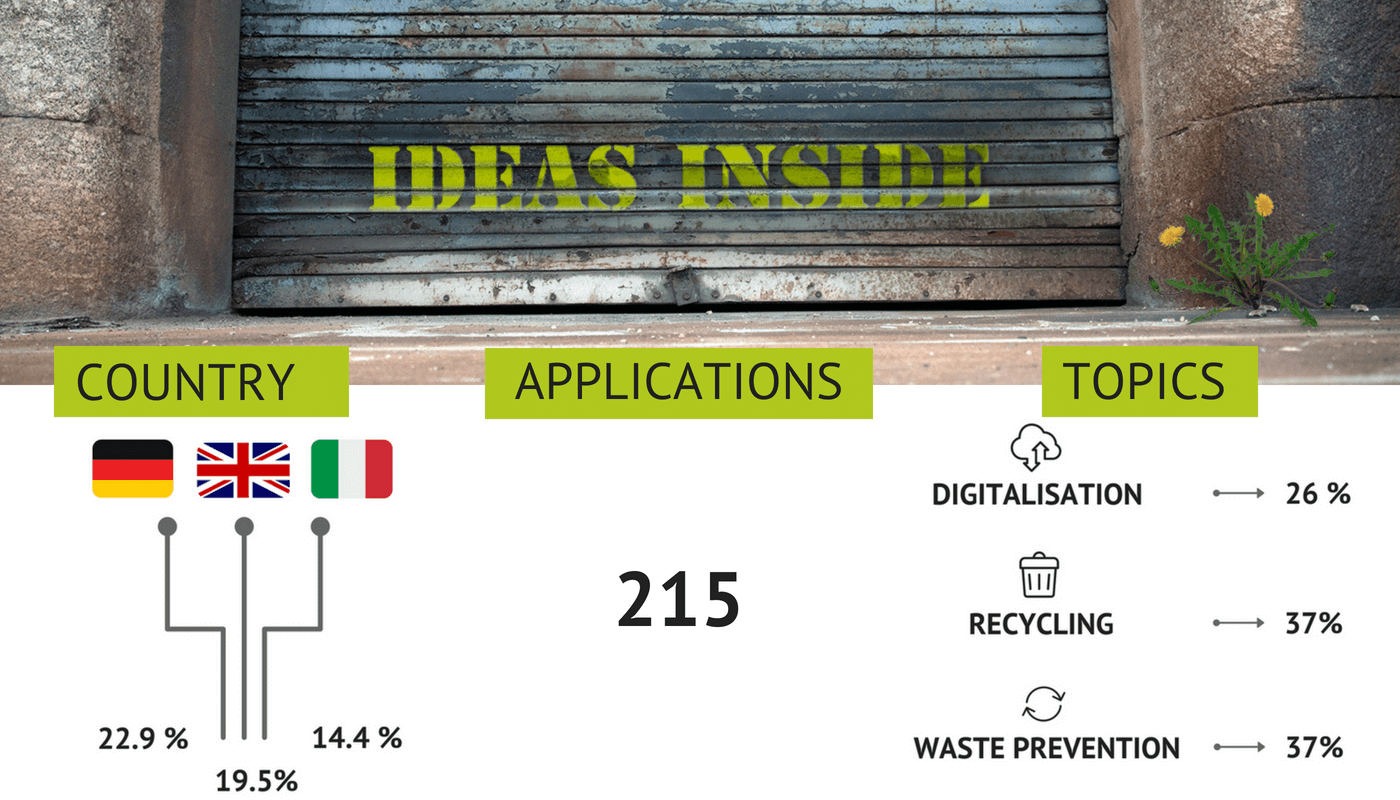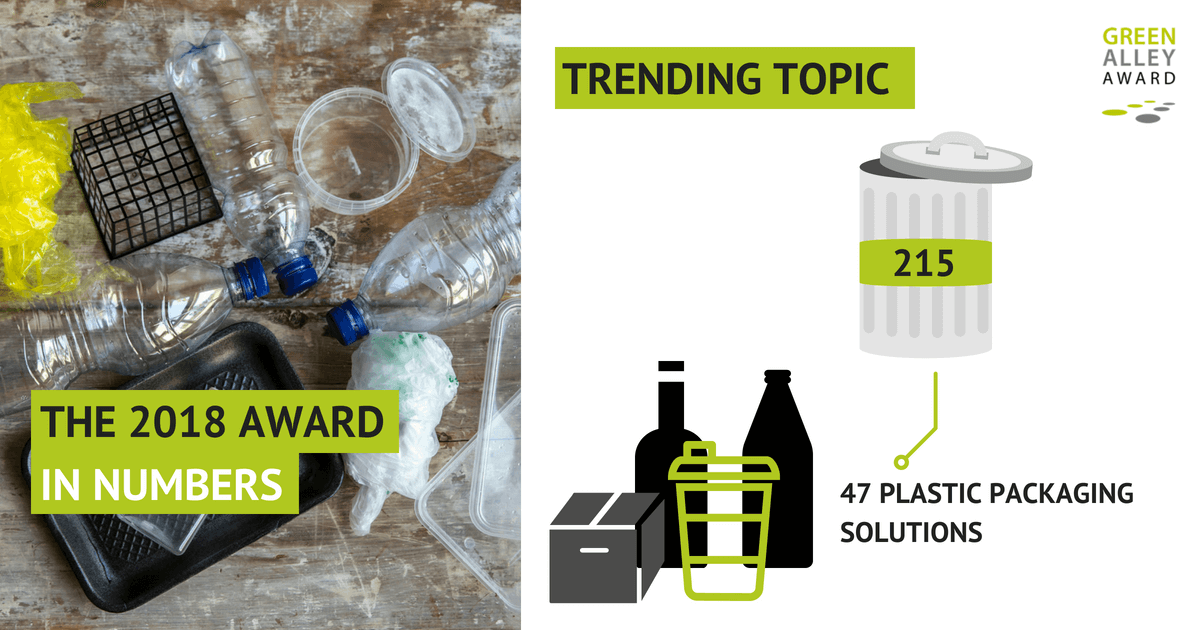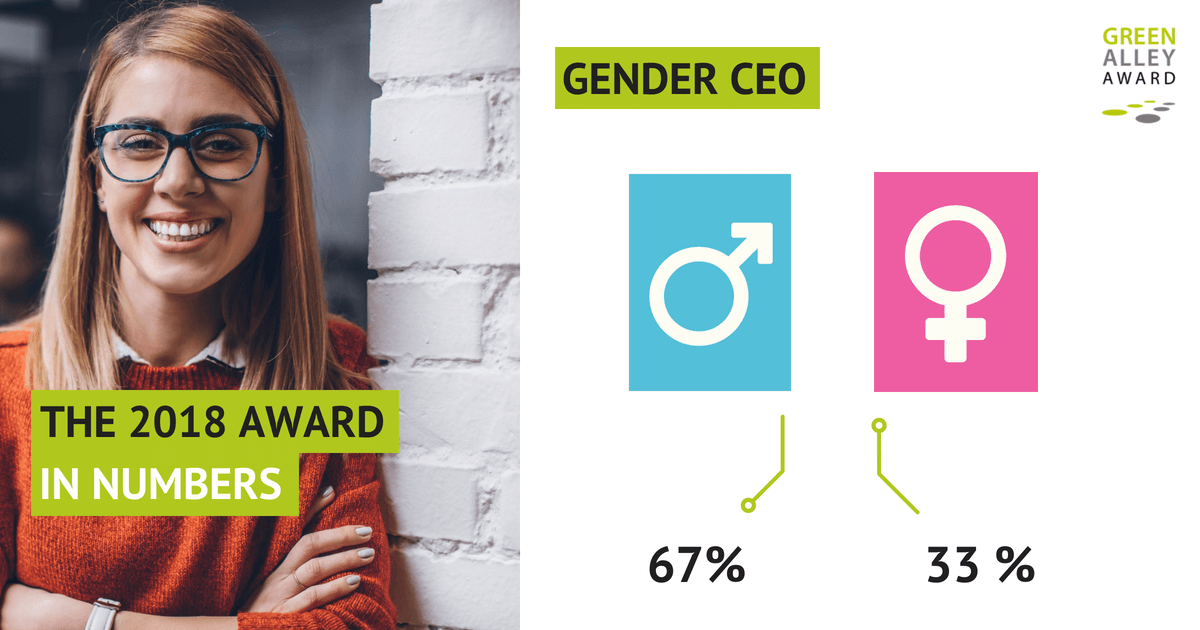
Insights on the 2018 circular economy startup eco-system in Europe
The Green Alley Award 2018 stats
For our team, the day after applications for the Green Alley Award have closed, always feels like a big surprise party with a huge birthday present packed with lots of great goodies and sweets we immediately want to unwrap. That day, we are so excited to go through our email inbox and check how many applications we have received in the end, from which part of the world they came and what kind of ideas were sent to revolutionize the circular economy. In a next step, we analyse all the data the startups have given us to get a clearer picture of the applicants of this year’s cohort. Since our statistics are a good measure for the standing of the circular economy and the circular economy startup eco-system in Europe, we would like to share some insights here.
215 ideas for a circular economy
This year we received an amazing number of 215 applications, which is a great sign for the liveliness and entrepreneurial spirit in the small niche of circular economy startups. The steadily increasing number since 2014 proves the great potential of turning waste into a business model. Starting with 70 applications from Germany, Austria and Switzerland alone, we continuously extended the geographical scope, first to the UK in 2015, resulting in 100 applications, then to all of Europe, which helped us almost double the outcome in 2016 to 191. Since 2017, with 205 applications, the number is now stabilizing at this high level. This also gives hope that the next generation will truly live the credo of reduce, reuse, recycle and can really make a difference for our environment.

Surprise country Italy
The startups that applied came from 30 different European countries – a vast geographical spectrum given that almost every country on the European subcontinent from Albania to the Ukraine was included. Top performing country contributing 23 % of all applications was Germany. Although Berlin with its growing international recognition as a major startup hub is also home of most of the German startup applicants, the city has no monopoly: German applications came from 28 different cities all around the country. Second in being the cradle of this year’s circular economy startups was the UK with 19 % of all applications. But here the capital London definitely predominated: More than two thirds of all UK startups are based in the highest performing European startup ecosystem. A surprise was the country ranking third in this list: Italy with 14 %! Although the country is said to be a late mover in the startup game, it proved to be a hotbed of circular economy innovations this year. We never received so many Italian startup applications than for the 2018 Green Alley Award.
Trending topics: digitalisation and packaging
Focus of our call to applications this year were three central building blocks for a circular economy in Europe: Waste prevention, recycling and digital circular economy solutions. 37 % of all 215 startups are fighting for a world in which waste does not exist at all and can be prevented by the use of alternative materials, low material consumption, the extension of the product life cycle, repairability or multiple use when designing products. Another 37 % fell into the category “recycling” and submitted innovations and new technologies that simplify the recycling process, increase recycling rates, improve the recyclability of products or enhance the use of secondary raw materials. 26 % of all applicants used the digitalisation to better coordinate and connect material and information flows in the economy via technical solutions such as Big Data, Internet of Things, Block Chain or other applications.

Although digital solutions were not yet predominant this year, they definitely were a trending topic. This observation also fits to the developments of the startup ecosystems on a global scale. According to the Global Startup Ecosystem Report 2018, there is a shift to a new era of tech. Whereas businesses in the last decades entirely operated within the world of internet and technology, like Google, Facebook or Youtube, startups are now building their business on technologies that will have an effect on the reality and transform the real-world industries like, in our case, the waste industry. This year, many ideas in the newly introduced category “digital circular economy” were platforms designed to provide information on the circularity of products and materials or the quality, quantity and use of raw materials from waste and its environmental benefits.
The numerous different waste streams Green Alley Award applicants dealt with, illustrate the enormity of the waste challenge our world is facing. But one waste stream stood out from the mass and seems to trouble not only consumers and policy makers across Europe: Packaging waste, especially plastic packaging, which accounts for 40 % of the 58 Million tonnes of plastic produced in Europe every year, seems to be the new challenge for entrepreneurs. 47 applications out of 215 tried to find solutions or alternatives to this kind of material.
Startup insights
Now let’s have a closer look at the startups themselves, their business models as well as their stage of development. The majority of startups (54 %) offer a product, 30 % a service and 16 % a technology. The main target group of the Green Alley Award 2018 applicants are rather companies than consumers which makes B2B with 72 % the most frequent type of business transaction. Revenue streams mostly stem from sales (73 %), only a minority uses business models such as lending/renting/leasing (9 %) or licensing (8 %).
Barely half of the startups that applied for this year’s Award were already incorporated and among those the majority of startups (73 %) were founded within the last three years with a small peak in 2016. This shows that most of the ideas for engineering a circular economy in Europe are still young and fresh and that we can hope for more ideas to develop in the coming years.

Analyzing the Green Alley Award 2018 startup cohort also illustrates that starting a business, especially in a niche such as the circular economy, not only requires a certain entrepreneurial mindset but also a strong motivation to become successful. In this context, a willingness to change the world is central to shaping the waste and recycling industry of the future. According to the Global Startup Ecosystem Report 2018, which also analyzed how female and male founders might differ, women founders are more likely to say that they want to change the world through their startup than male founders. Therefore, we are more than happy to account for 33 % of female founders among the Green Alley Award applicants this year and hope that this number will constantly rise until our world is changed for the better!
The Green Alley Award team thanks all applicants for submitting their ideas and will now plunge into close readings during the hot summer months until it emerges back to the surface in autumn to reveal the names of the startups nominated for the Green Alley Award finals. Stay tuned – it’s going to be exciting!